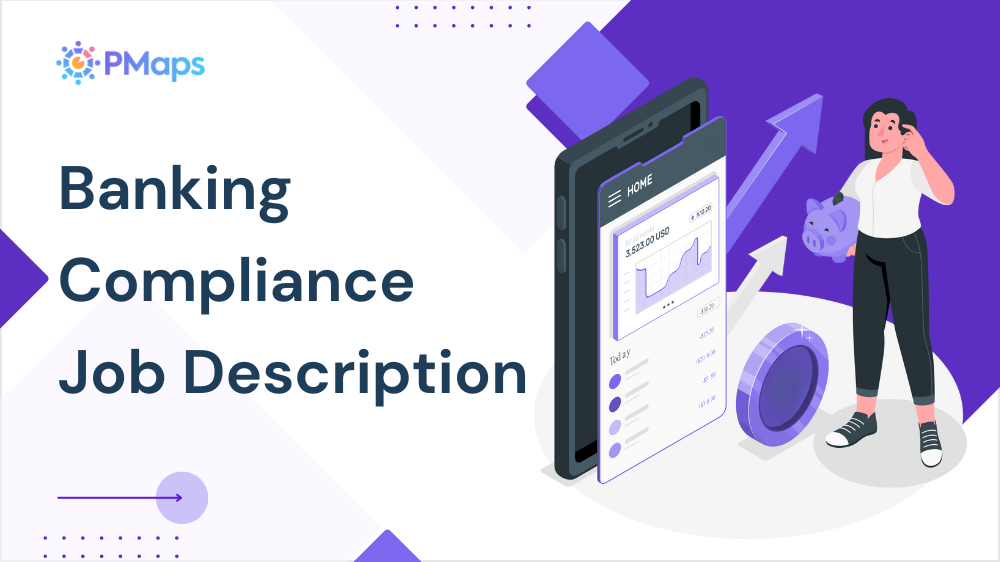
Retail banking connects customers to the core of financial operations. This retail banker job description outlines a role that supports account servicing, deposit products, and transaction efficiency within regulated branch environments and centralized finance functions.
Retail bankers manage day-to-day client interactions while ensuring process compliance, system accuracy, and timely banking support. This position differs from sales or advisory profiles—it focuses on delivering essential banking services such as account maintenance, product explanation, and transactional issue resolution. The role involves collaboration with operations, finance, and customer support units to ensure service continuity and product understanding across retail segments.
Retail Banker Roles & Responsibilities
This role supports banking access, product delivery, and service accuracy across customer accounts. The responsibilities below define how retail bankers contribute to operational efficiency, customer satisfaction, and product clarity.
- Account Operations: Open, maintain, and update customer accounts in accordance with KYC protocols.
- Cash and Transaction Handling: Assist with deposits, withdrawals, and cheque processing using core banking systems.
- Service Desk Support: Address customer inquiries, resolve transaction issues, and provide banking assistance at the branch.
- Product Information: Explain features of savings accounts, fixed deposits, and debit services.
- Documentation Review: Validate submitted forms, ID proofs, and service applications for compliance.
- Internal Coordination: Work with finance, operations, and customer support teams for escalated service requests.
- Digital Onboarding Support: Guide customers on using mobile banking, net banking, and service portals.
- Transaction Logging: Ensure accurate recordkeeping of customer requests, queries, and service outcomes.
- Audit Preparedness: Maintain records and service logs in formats ready for internal and regulatory audits.
HR Takeaway: Banks using role-specific retail assessments reduce branch-level service errors by 24% (Deloitte). Use our Retail Banker Assessment to evaluate account servicing ability, product familiarity, and compliance readiness.
Qualification and Skill Requirements for Retail Bankers
Retail bankers require a blend of service discipline, financial accuracy, and product awareness. These qualifications help identify candidates who are operationally ready to manage account-related services and customer-facing responsibilities.
- Educational Background: Bachelor’s degree in Commerce, Banking, Finance, or Business Administration.
- Experience: 1–3 years in branch banking, customer service, or account operations.
- Banking System Knowledge: Familiarity with CBS, CRM tools, and service request platforms.
- Product Understanding: Clear knowledge of savings, deposits, cards, and branch-based transaction services.
- Documentation Accuracy: Experience handling KYC forms, application checks, and account update workflows.
- Customer Service Skills: Ability to explain procedures, manage expectations, and ensure transaction clarity.
- Compliance Awareness: Understanding of RBI norms, internal controls, and data security procedures.
- Digital Literacy: Confidence in navigating online banking platforms and guiding customers on usage.
Perks and Benefits of the Retail Banker Role
This role offers process stability, direct customer engagement, and a clear path to banking operations. The benefits below are designed for professionals who manage account-level services and uphold transaction consistency across institutional environments.
- Structured Induction: Training on banking systems, compliance norms, and branch procedures.
- Stable Role Scope: Clearly defined account servicing responsibilities and escalation protocols.
- Career Growth: Advancement options into operations, service lead, or relationship management roles.
- Performance Recognition: Incentives linked to accuracy, customer service quality, and branch productivity.
- Cross-Department Exposure: Work closely with credit, compliance, and back-office support teams.
- Learning Access: Internal upskilling opportunities in service tools, banking laws, and digital adoption.
- Employee Benefits: Access to structured leave policies, health coverage, and long-term employment programs.
Tips for Employers to Craft an Effective Retail Banker JD
A clear job description improves candidate fit and operational efficiency. For retail banker roles, it’s essential to define product exposure, documentation duties, and customer handling scope. The tips below help you create structured, accurate listings that attract ready-to-perform professionals.
- Specify Banking Products: Mention whether the role covers savings, FD, debit, or locker services.
- Clarify System Tools: Include core banking or CRM platforms used in the branch.
- Define Customer Interactions: Explain if the role supports walk-ins, appointments, or back-office processes.
- Include Compliance Tasks: Note KYC responsibilities and any documentation control expectations.
- Mention Service Metrics: Highlight KPIs such as turnaround time or service ticket resolution.
- State Shift or Location Details: Clarify if rotational shifts or multi-branch coverage is required.
Did you know? Structured retail banking interviews improve role alignment by 28% (Capgemini). Use our Retail Banker Interview Questions to assess service accuracy, product knowledge, and transaction-handling readiness.








